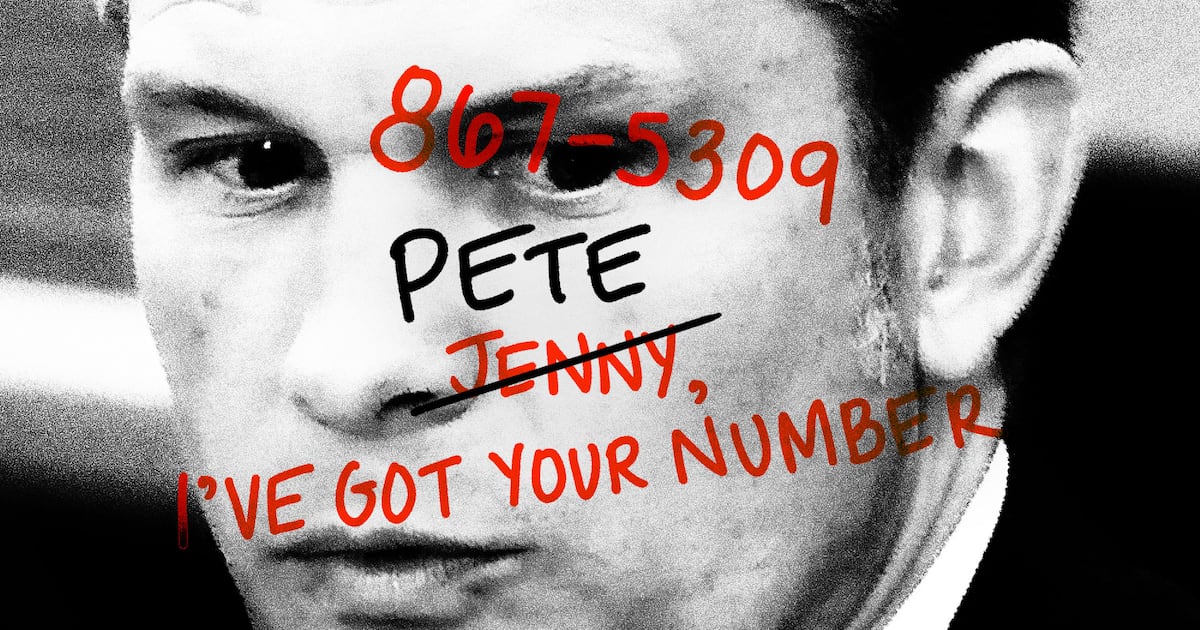
James Toback, director of the new documentary Tyson, which opens Friday in New York and L.A., talks about what it takes to extract confessions from the notorious former champ.
James Toback carries himself like a plump doctoral candidate in philosophy, lecturing and debating the sins of flesh. He’s a director known as much for his eccentric personality as his work ( Fingers, Two Guys and a Girl, Bugsy, Black and White), who revels in depravity and pontificates about sex at length, including what he calls his “black, orgiastic” years when he roomed with football legend Jim Brown. It’s not surprising then, that Mike Tyson—former heavyweight champion, sex offender, drug abuser, paparazzi attacker—is an obsession, and the subject of Toback’s first documentary Tyson, which premiered at Cannes last May and will appear in theaters April 24.
Tyson implies that there's no way he raped Desiree Washington. His reasoning: He’s raped before and knows the difference. You have to wonder: accidental slip, or calculated confession?
Despite the taint of violence that trails Tyson, there’s a sad desperation in Toback’s portrayal, an honest acknowledgement of the tragic figure that Tyson has become now that he’s without his hundreds of millions of dollars, his white tigers, his wives, and his ability to fight. Tyson isn't a traditional documentary; most noticeably, there are no secondary interviews. It is simply a portrait: shots of Tyson speaking intercut with early training footage. "This is who he is," Toback says from an oceanfront hotel suite in Los Angeles, surrounded by plates of shrimp. "He's being presented in as complete and truthful way as a human can be presented in film."
Over the years Mike Tyson has popped up in Toback's films, most memorably in an improvised scene for 1999’s Black and White, in which Tyson slapped and then choked Robert Downey Jr. after Downey’s character flirted with him. When Brooke Shields takes her turn hitting on Tyson, the boxer says, “You’re not dealing with an animal. This is not a study of animals.” He may as well have been addressing his public.
"He trusts me," Toback says of the fighter, now a softer, saggy 42. "His managers told me there's nobody else he'd do this kind of movie with. I'm not gonna violate that trust."
In the opening scene, Tyson sits on a white couch in an airy, nondescript Malibu living room and speaks softly of his life. He is confessional, contemplative, quiet. He talks about his headline life (jail, rape, divorce, addiction, ear-biting, baby eating, boxing) and what he hopes to be a more private future (drug rehab, a wish to be “a grandpa”).
"I think he's a very complex and obsessive thinker," Toback says. "His mind is always going and he likes having that observed. This is the first chance he's had to do that on his own terms, not when he's being prompted to sell tickets for a fight or to get publicity." And yet this movie is the ultimate form of publicity, an unexpected look at a self-reflective Tyson, a thinker rather than a fighter. His only hope of emerging from rehab and bankruptcy a changed man is to convince the public that there’s value in the man who remains.
Toback first met Tyson 23 years ago while he was filming The Pick-Up Artist in New York. In an absurd confluence of celebrity, Anthony Michael Hall brought Tyson to meet Molly Ringwald, Warren Beatty, Robert Downey Jr., and then-presidential hopeful Gary Hart, who was hoping for Tyson's support to garner the black vote. Tyson and Toback ended up in the director's trailer talking madness. "Mike was very intrigued by my LSD flip out [at Harvard] which he had heard about from Jim Brown.”
“I told him, 'The only way you can know what madness is, is to experience it and that I would only wish it on the people I truly loathe.' Years later, after he got out of prison, he told me, 'When I was in solitary one night lying on the concrete in my cell, I thought, now I know what Toback meant.'"
Toback allowed just five crew members to be present in the room during filming of Tyson and the resulting footage is almost disturbing in its intimacy; it gives the appearance that the boxer is talking to his therapist. In one cut of the film, while discussing Desiree Washington (the beauty contestant whom he was convicted of raping), the fighter implies that there's no way he raped Washington. His reasoning: He’s raped before and knows the difference. You have to wonder: accidental slip, or calculated confession?
Tyson, as sad as it is, is a film about redemption; it is a film about a broken man coming to terms with his flailing public identity. Toback finds hope in Tyson’s tragic figure (he’s better off broke than being robbed blind by boxing promoters) but there isn’t a clear answer as to what comes next. "People were attracted to the kind of fighter he was,” he says, but it’s clear that Toback is presenting both Tyson’s ferocity and what “makes Mike human." And that, if nothing else, is what Toback wants the world to see: Mike Tyson, human.
Jaime Lowe is the author of Digging for Dirt: The Life and Death of ODB (Faber & Faber). Her writing has appeared in the Village Voice, Interview, Radar, Penthouse and Sports Illustrated. She is the tunnels correspondent for infrastructurist.com and lives in Brooklyn, New York.





